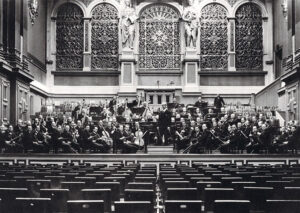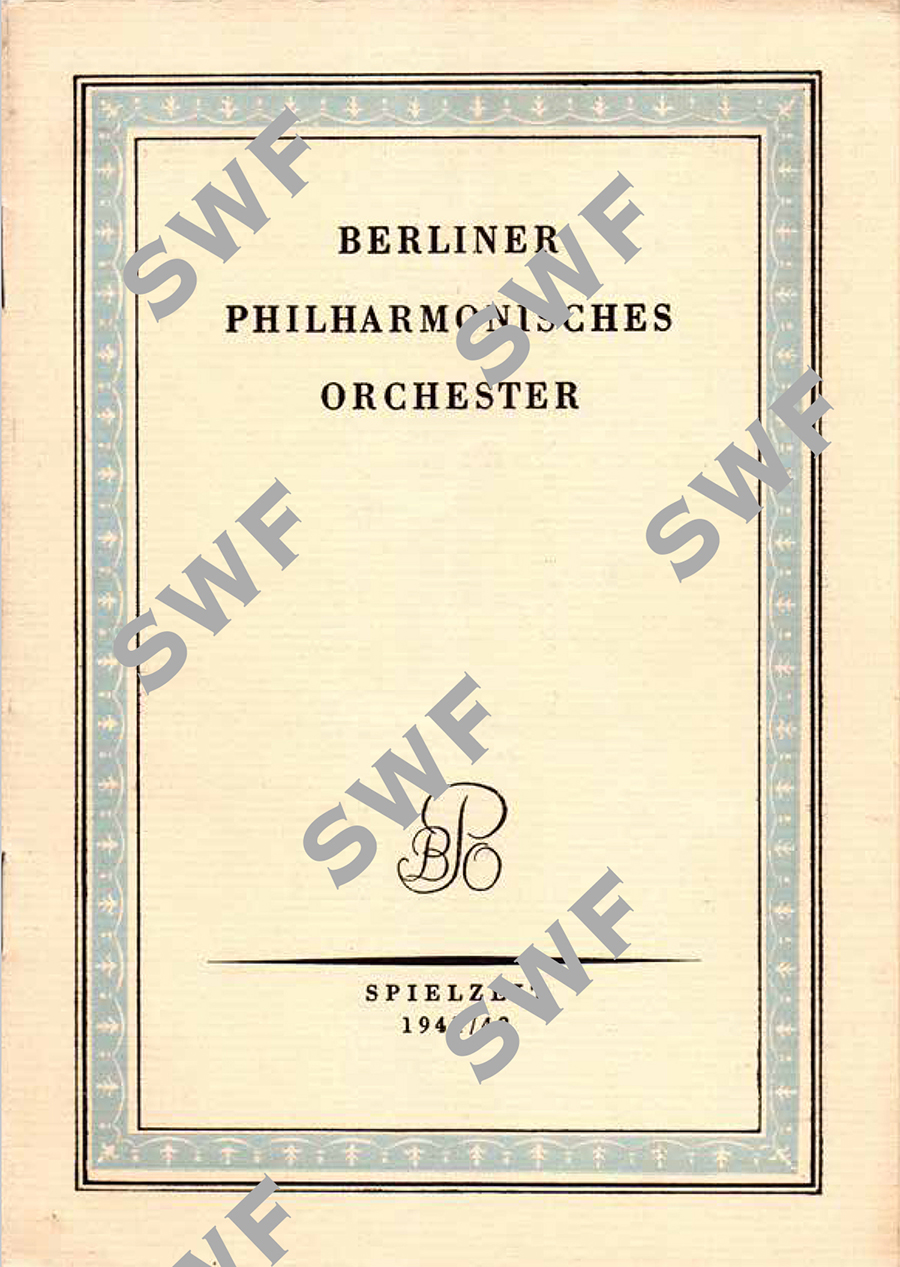Concert of 11 January 1942
The programme on 11 January 1942 in Berlin provides an opportunity to sketch a short portrait of an exceptional musician, the American violinist Guila [Teressina] Bustabo (1916-2002), who, under the guidance of her fearsome mother, spent most of her career in Europe from 1940 onwards, in Nazi Germany and in the occupied countries. In 1945, her homeland held it against her. She suffered from this and said about her fellow student: "Menuhin got away from his parents. He was lucky. I never got away from mine."
Some interesting facts about the brochure itself. An additional leaflet gives us the names of the conductors involved in Handel's Concerto grosso, and amends the programme: it is indeed the three Hungarian dances orchestrated by Brahms that end the concert.
More revealing, an article by Karla Höcker, Johannes Brahms in Berlin, sheds light on the relationship between the Hamburg native and the Prussian capital city. Of course is mentioned Hans von Bülow, who did so much for Brahms as conductor of the young Philharmonic, while a key figure in Brahms's life is completely ignored: Joseph Joachim. A name that sounded evil to German ears at the time...


